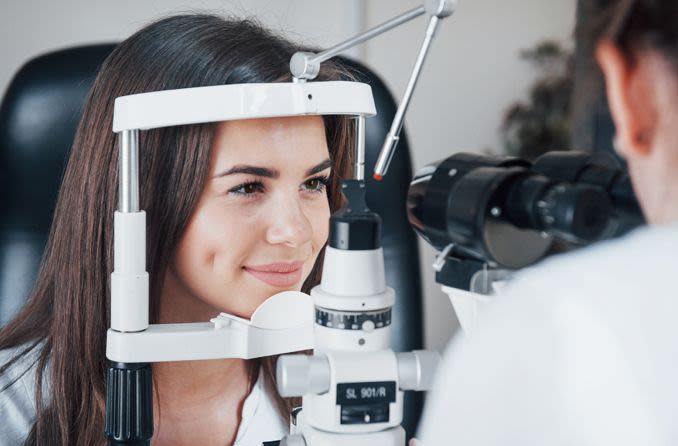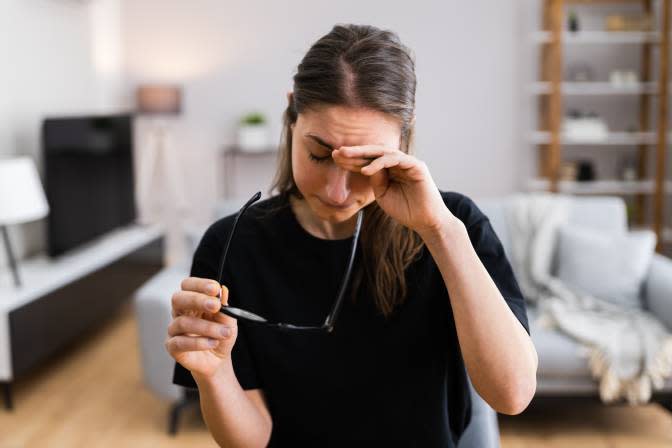All Categories
Featured
Low vision is a condition that significantly impacts everyday tasks like reading, driving, or acknowledging faces, despite having corrective lenses. For individuals dealing with such difficulties, reduced vision recovery provides a path to reclaim independence and improve lifestyle. Allow's dig into the offered choices for low vision rehabilitation and how they assist people browse the world more confidently.
Recognizing Low Vision Rehab
Low vision rehab is a specific solution made to make the most of the practical capacities of individuals with irreversible vision impairment. This multidisciplinary approach entails analyses, training, and devices tailored per individual's unique needs. The objective is to empower individuals by improving their staying vision and training approaches to adapt to their environment.
Secret Options in Reduced Vision Rehab
Comprehensive Eye Examinations
A reduced vision expert performs detailed assessments to comprehend the degree of vision loss and determine ideal interventions. These assessments concentrate on identifying the person's aesthetic acuity, outer vision, and light level of sensitivity.
Assistive Tools and Technology
A large range of devices and innovations are readily available to assist people with reduced vision:
Magnifiers: Handheld, stand-mounted, or electronic magnifiers help increase the size of text or images.
Telescopic Lenses: Useful for range viewing, such as viewing television or analysis road indications.
Screen Viewers: Software program that checks out aloud the text on a display, aiding those that struggle with analysis.
CCTV Equipments: Closed-circuit televisions amplify published material or items for much easier watching.
![]()
Smartphone Apps: Applications like Be My Eyes or Seeing AI give real-time assistance and descriptions of environments.
Educating Programs
Vision recovery consists of training to maximize making use of remaining vision and adapt to new devices:
Positioning and Mobility Training: Assists people browse unknown areas and use walking sticks or overview dogs effectively.
Daily Living Skills: Instructs techniques for cooking, grooming, and various other day-to-day jobs with minimal vision.
Visual Skills Educating: Involves exercises to strengthen peripheral vision or boost focus.
Environmental Alterations
Adjusting the home or office can dramatically improve independence:
Setting up brighter lights and contrasting shades.
Including responsive pens to appliances.
Setting up furnishings to create clear courses and lower obstacles.
Counseling and Emotional Support
Vision loss can be psychologically tough. Support system and counseling services help individuals cope with the emotional impact and build durability.
Who Gives Reduced Vision Rehabilitation?
Reduced vision rehab services are provided by:
Reduced Vision Specialists: Eye doctors or ophthalmologists with extra training.
Physical Therapists: Specialists who concentrate on improving everyday performance.
Rehabilitation Therapist: Professionals who help with emotional and psychological assistance.
![]()
Conclusion
Reduced vision rehab is a lifeline for those dealing with significant vision loss. With the right tools, training, and support, people can lead fulfilling and independent lives. Whether it's via progressed modern technologies, tailored training programs, or psychological guidance, the options offered today guarantee that nobody has to deal with low vision alone. Think about getting to out to a reduced vision professional to discover these transformative rehab solutions. if you or a loved one is experiencing vision difficulties.
Recognizing Low Vision Rehab
Low vision rehab is a specific solution made to make the most of the practical capacities of individuals with irreversible vision impairment. This multidisciplinary approach entails analyses, training, and devices tailored per individual's unique needs. The objective is to empower individuals by improving their staying vision and training approaches to adapt to their environment.
Secret Options in Reduced Vision Rehab
Comprehensive Eye Examinations
A reduced vision expert performs detailed assessments to comprehend the degree of vision loss and determine ideal interventions. These assessments concentrate on identifying the person's aesthetic acuity, outer vision, and light level of sensitivity.
Assistive Tools and Technology
A large range of devices and innovations are readily available to assist people with reduced vision:
Magnifiers: Handheld, stand-mounted, or electronic magnifiers help increase the size of text or images.
Telescopic Lenses: Useful for range viewing, such as viewing television or analysis road indications.
Screen Viewers: Software program that checks out aloud the text on a display, aiding those that struggle with analysis.
CCTV Equipments: Closed-circuit televisions amplify published material or items for much easier watching.

Smartphone Apps: Applications like Be My Eyes or Seeing AI give real-time assistance and descriptions of environments.
Educating Programs
Vision recovery consists of training to maximize making use of remaining vision and adapt to new devices:
Positioning and Mobility Training: Assists people browse unknown areas and use walking sticks or overview dogs effectively.
Daily Living Skills: Instructs techniques for cooking, grooming, and various other day-to-day jobs with minimal vision.
Visual Skills Educating: Involves exercises to strengthen peripheral vision or boost focus.
Environmental Alterations
Adjusting the home or office can dramatically improve independence:
Setting up brighter lights and contrasting shades.
Including responsive pens to appliances.
Setting up furnishings to create clear courses and lower obstacles.
Counseling and Emotional Support
Vision loss can be psychologically tough. Support system and counseling services help individuals cope with the emotional impact and build durability.
Who Gives Reduced Vision Rehabilitation?
Reduced vision rehab services are provided by:
Reduced Vision Specialists: Eye doctors or ophthalmologists with extra training.
Physical Therapists: Specialists who concentrate on improving everyday performance.
Rehabilitation Therapist: Professionals who help with emotional and psychological assistance.

Conclusion
Reduced vision rehab is a lifeline for those dealing with significant vision loss. With the right tools, training, and support, people can lead fulfilling and independent lives. Whether it's via progressed modern technologies, tailored training programs, or psychological guidance, the options offered today guarantee that nobody has to deal with low vision alone. Think about getting to out to a reduced vision professional to discover these transformative rehab solutions. if you or a loved one is experiencing vision difficulties.
Latest Posts
Take Advantage of Special Auto Repair Offers in Chicago at Montclare Auto Repair
Published Jun 01, 25
1 min read
Seamless Aluminum Gutters: The Smart Option for Your Home
Published May 25, 25
1 min read
Learn Why Chicago Drivers Pick Montclare Auto Repair for Dependable Service and Huge Savings
Published May 23, 25
1 min read
More
Latest Posts
Take Advantage of Special Auto Repair Offers in Chicago at Montclare Auto Repair
Published Jun 01, 25
1 min read
Seamless Aluminum Gutters: The Smart Option for Your Home
Published May 25, 25
1 min read
Learn Why Chicago Drivers Pick Montclare Auto Repair for Dependable Service and Huge Savings
Published May 23, 25
1 min read